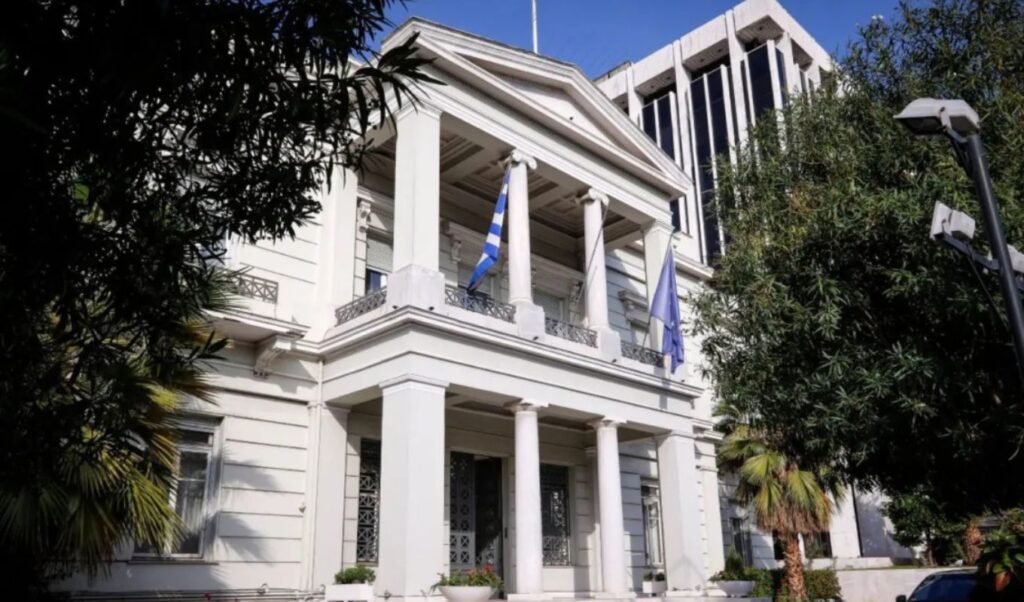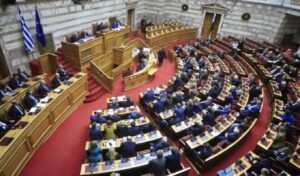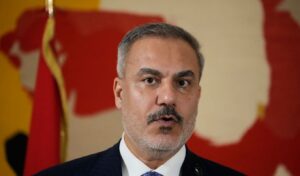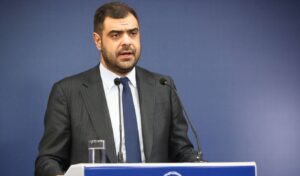Experienced analysts view yesterday’s statements by Maria Zakharova as confirmation that relations between Greece and Russia have reached rock bottom. The Russian Foreign Ministry spokesperson, in a display of changing stance on Greece’s national issues, referenced both the North Macedonia naming dispute and the Cyprus issue, defending the positions of North Macedonia and Turkey against our country.
According to diplomatic sources, Russia as a permanent UN member has consistently maintained a positive stance toward Cyprus, and this statement potentially signals a change in position on the Cyprus issue. This, of course, remains to be seen when negotiations on Cyprus yield results and reveal the stance each UN member state will adopt. As experienced analysts tell parapolitika.gr, Russia’s position on Cyprus is now an issue that should be closely monitored by Greek and Cypriot authorities.
What is certain is that the Russian official’s statement demonstrates her intention to highlight the good relations Russia maintains with Turkey. The assessment is that Zakharova’s statement regarding Skopje, which she called the “Republic of Macedonia,” was made to provoke the Greek side. She used a term that refers back to the pre-Prespa Agreement era. The Skopje issue, according to the same observers, is more complex due to the shifting diplomatic alliances that North Macedonia forms. The interpretation given to Russia’s stance on Skopje is that it rejects the Prespa Treaty.
Zakharova’s attacks against Greece
This is not the first time the Russian Foreign Ministry spokesperson has turned against our country. Athens’ reaction to Russia’s invasion of Ukraine with unreserved support for Kyiv has drawn Maria Zakharova’s fire since the early days of the conflict. In May 2022, Zakharova told TASS agency: “This is yet another attempt by Athens to justify its deeply mistaken decision to join the West’s anti-Russian front, including supplying Kiev with weapons that are used for daily strikes against peaceful civilians in Donbas.”
A crisis in Greek-Russian relations had occurred earlier, in 2018, when then-Foreign Minister Nikos Kotzias expelled Russian diplomats from Athens, resulting in a diplomatic incident. The fact remains that Greece and Russia have cut all communication bridges, and the future will show whether relations can be gradually restored.
The Foreign Ministry’s response to Zakharova
It is recalled that Athens gave a harsh response to Russian Foreign Ministry spokesperson Maria Zakharova. “The Turkish invasion of Cyprus in 1974 remains an open wound for Hellenism and constitutes a flagrant violation of international law, with consequences that continue to burden the international community,” Greek diplomatic sources “reminded” the Russian official. Meanwhile, Athens recalls that the July 15, 1974 coup has been unequivocally condemned by all democratically elected governments of the country, while emphasizing the consistent international recognition of Cyprus as an issue of invasion and occupation. In light of these facts, the Greek response to the Kremlin emphasizes the importance of peaceful resolution of disputes, as demonstrated in the case of North Macedonia, and highlights the historical value of the Helsinki Final Act of 1975, which established the principles of peaceful coexistence and cooperation between states.
Athens’ complete response to Zakharova on Cyprus and North Macedonia
“Everyone should know that the Turkish military invasion of Cyprus that took place in 1974 constitutes a flagrant violation of the sovereignty and territorial integrity of the Republic of Cyprus and led to the illegal occupation, since then, of approximately 37% of Cyprus territory, to the humanitarian tragedy of Greek Cypriots displaced from their homes, the enclaved and the missing persons.
It is recalled that the Helsinki Act was signed in August 1975. Regarding the unfortunate reference to the July 15, 1974 coup, that is, one year before the signing of the Final Act, we emphasize that all democratically elected Greek governments from 1974 to today and all political forces in Greece have condemned it unequivocally. We also refer to the international community, which has repeatedly expressed itself on Cyprus as an international issue of invasion and occupation, in direct violation of the UN Charter and UN Security Council Resolutions. We also refer to public statements by the Foreign Minister of the Russian Federation with explicit references to relevant UN Resolutions.
Regarding references to our country’s relations with North Macedonia, we recall that our difference with North Macedonia was resolved through peaceful means under UN auspices. Let us all reflect that conferences were once held that left an indelible mark on the history of international relations. In Helsinki in 1975, the historic breakthrough was made in institutionalizing peaceful coexistence of states and defining the principles that would govern their mutual relations.”




